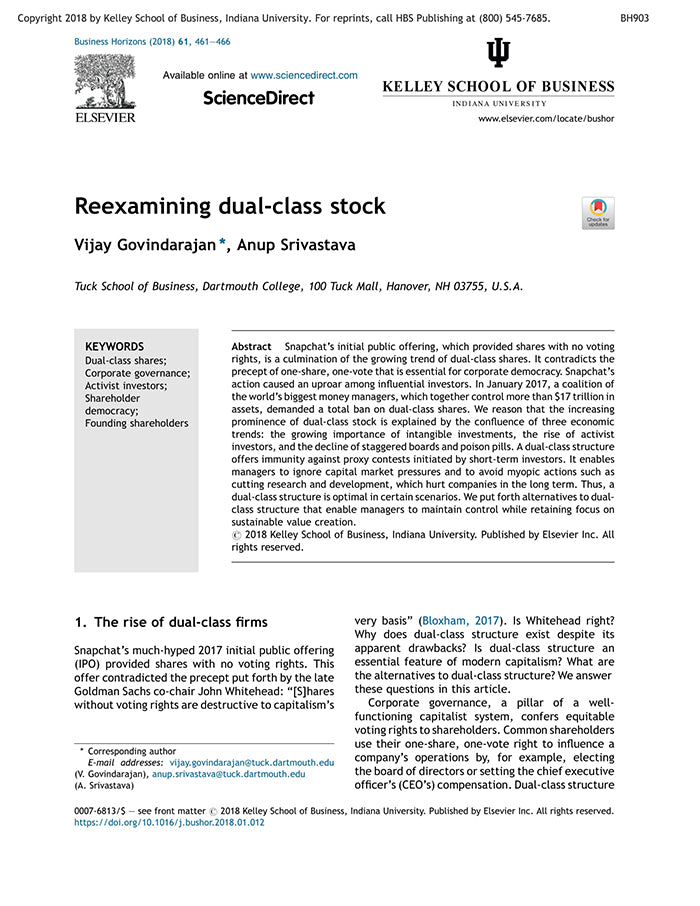Reexamining Dual-Class Stock
受取状況を読み込めませんでした
Snapchat's initial public offering, which provided shares with no voting rights, is a culmination of the growing trend of dual-class shares. It contradicts the precept of one-share, one-vote that is essential for corporate democracy. Snapchat's action caused an uproar among influential investors. In January 2017, a coalition of the world's biggest money managers, which together control more than $17 trillion in assets, demanded a total ban on dual-class shares. We reason that the increasing prominence of dual-class stock is explained by the confluence of three economic trends: the growing importance of intangible investments, the rise of activist investors, and the decline of staggered boards and poison pills. A dual-class structure offers immunity against proxy contests initiated by short-term investors. It enables managers to ignore capital market pressures and to avoid myopic actions such as cutting research and development, which hurt companies in the long term. Thus, a dual-class structure is optimal in certain scenarios. We put forth alternatives to dual-class structure that enable managers to maintain control while retaining focus on sustainable value creation.
【書誌情報】
ページ数:6ページ
サイズ:A4
商品番号:HBSP-BH903
発行日:2018/5/1
登録日:2018/6/27


